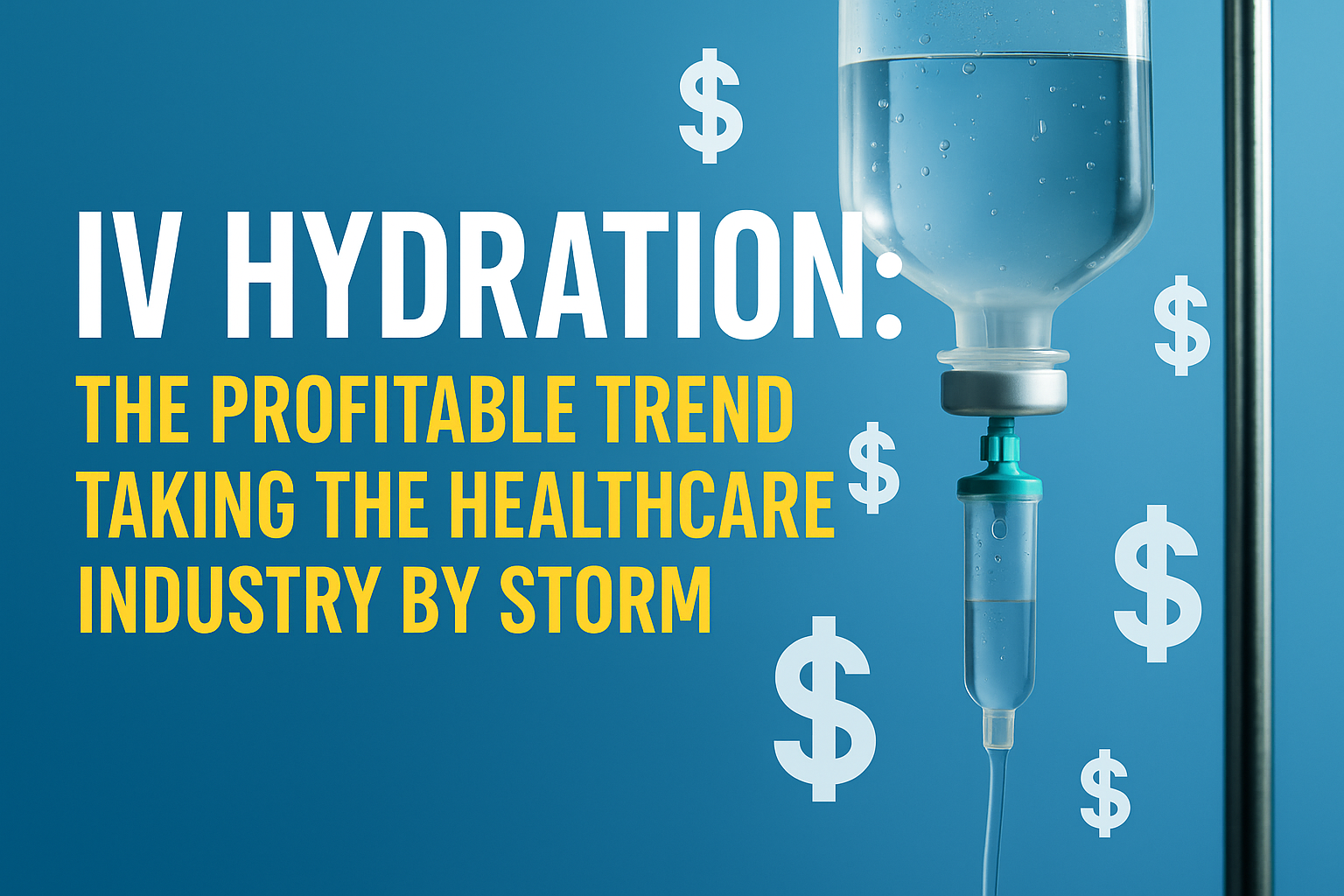The Importance of Setting Up Payroll Before Hiring Employees
Hey there EntreHealthPreneurs aka Healthcare bosses,
Even the most successful healthcare entrepreneurs struggle with one of the most essential pieces to running a business: payroll. Whether your healthcare business is a brick and mortar, telehealth, mobile service, or a combination practice it’s important to have a payroll system for your healthcare business.
At Healthcare Entrepreneur Academy, we recognize that there are a lot of steps to starting a healthcare business. With everything that needs to be done, it’s easy for important steps to slip through the cracks.
You may be wondering what has to be done first and what could wait until after your business is up and started. When it comes to setting up a payroll system for your business, that is one of the first steps that must be completed. Ideally, your business should be using a payroll service before any employees are hired.
Payroll is a crucial step in starting a healthcare business as it manages, monitors, and documents all employee affairs. A payroll system is a service your business uses to manage employee payments, file employee taxes, calculate employee wages and determine employment tax deductions.
An example of when a payroll system is extremely helpful is tax documentation. Each year, around tax season, your business must send a W-2 form to each employee. A payroll system helps with this yearly task instead of you having to manually calculate each employee’s individual earnings.
What if you only have one employee for your healthcare business?
No matter how many employees you have hired for your business, you will need a payroll system. The reason for this is not only to ensure your employee(s) get paid on time, but it’s also to protect you and your business legally.
Having a payroll system for your healthcare business—no matter the size of your business—helps you keep your business compliant with all local, state, and federal tax laws. Submitting your business taxes each year could be a complicated process, however, without a payroll system reporting your taxes becomes much more difficult than it needs to be.
By using a payroll system for your healthcare business, your business tax and financial records are kept organized and digitalized. Essentially, a payroll system makes filing business taxes easier than harder.
When first starting out, you may be your only employee for your healthcare business. This is a possibility for IV therapy start-ups or other private practices as you may not have enough business revenue right away to hire a full team. In this case, you will still need to implement a payroll system for your healthcare business. No matter the type or condition of your business, you have to have payroll.
If you are your only employee, you will still need to receive your paychecks through a payroll system. By using a payroll system, all of your business’ employee payments (even if it’s just yourself) are documented and done correctly. When filing taxes for your business, you have to make sure all of your T’s are crossed and I’s are dotted. Having a payroll system for your healthcare business helps with this so you are less likely to hit roadblocks during tax season.
How do you start a payroll system for your healthcare business?
Now that you have been informed why a payroll system is a necessity for your healthcare business, you may be wondering how you go about starting a payroll.
Yes, it is possible to process payroll manually but would spending all that time really help you run your business? As a healthcare professional, your time is valuable as it is spent caring for patients and improving the health of your community.
Companion Link said it best when they stated, “to scale and grow your business, you’ll need to start using payroll software.”
As a healthcare entrepreneur, your time should be focused on growing your business and providing exceptional care to your patients. You may be able to accomplish payroll manually if your business has five or less employees, but even then your time will be tight. Rather than scrapping by with limited time, why not leave room in your day to focus on scaling up your business?

By having a payroll system for your healthcare business, you could save yourself time to focus on other aspects of your business. Additionally, most payroll systems can integrate with your bookkeeping software so your business can run more efficiently.
Payroll systems are used to pay your employees and file tax information. The following steps below go through how to start up a payroll system for your healthcare business:
1. Apply and receive your Employer Identification Number (EIN).
An EIN is essentially a fingerprint for your business that is used for tax purposes. It’s a unique number assigned to you so the IRS can identify your business and track your taxes. Essentially, an EIN is a social security number for your business.
2. Confirm if you need ID numbers for your state or local government.
Some states require a business or employer identification number in addition to your federal EIN. It’s recommended to research your state’s business regulations and consult with an accountant if necessary.
3. Identify who are your contractors vs. employees.
Contracted workers and hired employees are classified separately so it’s important that you recognized the difference. If your workers are misclassified, your business could suffer from serious financial ramifications. Fountain, a hiring and recruiting software, identifies classification differences between workers and employees by their entitlements, health benefits, paid vacation, and taxation.
4. Have every employee fill out a W-4.
Once an employee has been hired, one of the first things that should be done during the onboarding process is a W-4 form. This form ensures your employee has the proper amount of federal and state taxes deducted from their paychecks. By filling out this form, your employee avoids owing the IRS a large amount of unpaid taxes.
5. Choose your pay period.
If you have ever worked for multiple different employers, you may have noticed the differences in paydays. Some employers pay on a weekly, bi-monthly, or monthly basis. How you determine your business’ pay period does not have much effect as long as your employees get their paychecks on time based on the pay period communicated.
6. Outline the details of your compensation program.
A compensation program is a documented plan for your employees’ salaries, benefits, and payment conditions. For example, paid time off, dental and health insurance, 401K, etc. would all be included in the compensation program.
7. Choose a payroll system.
There are a variety of payroll systems to choose from, so how do you know which one to use? Your payroll system should match your current and future business needs. For example, if you are intending on growing your business on a large scale, you would want to use a payroll service that could accommodate a large number of employees.
In addition to considering your business growth, you would want to look for a payroll system that is easy to manage based on your business operation. Each payroll system functions differently and offers different amenities. For example, some have employee clock-in software and others can sync up with inventory and warehouse management. Deciding which payroll system is best for your healthcare business will be determined by how your business functions and which software would benefit you the most.
8. Review federal and state law requirements.
There may be additional forms and records required by federal or state law along with a required period of time you need to keep these records and forms on file. It is advised to consult with a business accountant for further clarification on these requirements.
9. Submit your payroll tax information regularly to the government.
Besides filling out federal tax forms and deposits, you may also need to collect state income and unemployment taxes. This will depend on where your business is located and what state your taxes are registered in. It is advised to check with your state tax agency for state requirements and your city for any applicable tax requirements.
How can a payroll system affect your healthcare business?
Having a payroll system for your healthcare business is extremely important to help your business run smoothly. If you have never set up a payroll system before it may feel intimidating and overwhelming. However, once your payroll system is in use you will most likely find business ownership to be less daunting.
With the backing of a payroll system for your healthcare business (either a service or software), you will not need to stress about your business taxes or employee payments. Essentially, using a payroll system is like getting help from an expert.

Examining all the different IRS regulations, guidelines, and deadlines for businesses could become alarming. However, there is no rule that says you have to run your business alone. There can be a variety of benefits from expanding your business with employees. For example, the IRS offers a Small Business Health Care Tax Credit to companies with fewer than 25 full-time employees who have average annual earnings of under $50,000. What this means is that you can possibly hire more employees than you may first have realized. >Additionally, when you are familiar with the payroll process you will know what to expect for your business and how you can be fully prepared. There are plenty of resources available to business owners for further education, such as our Healthcare Entrepreneur Academy courses that include business curriculums catered specifically for healthcare bosses. Cheers, Jason Duprat, MBA, MSA, CRNA, APRN








